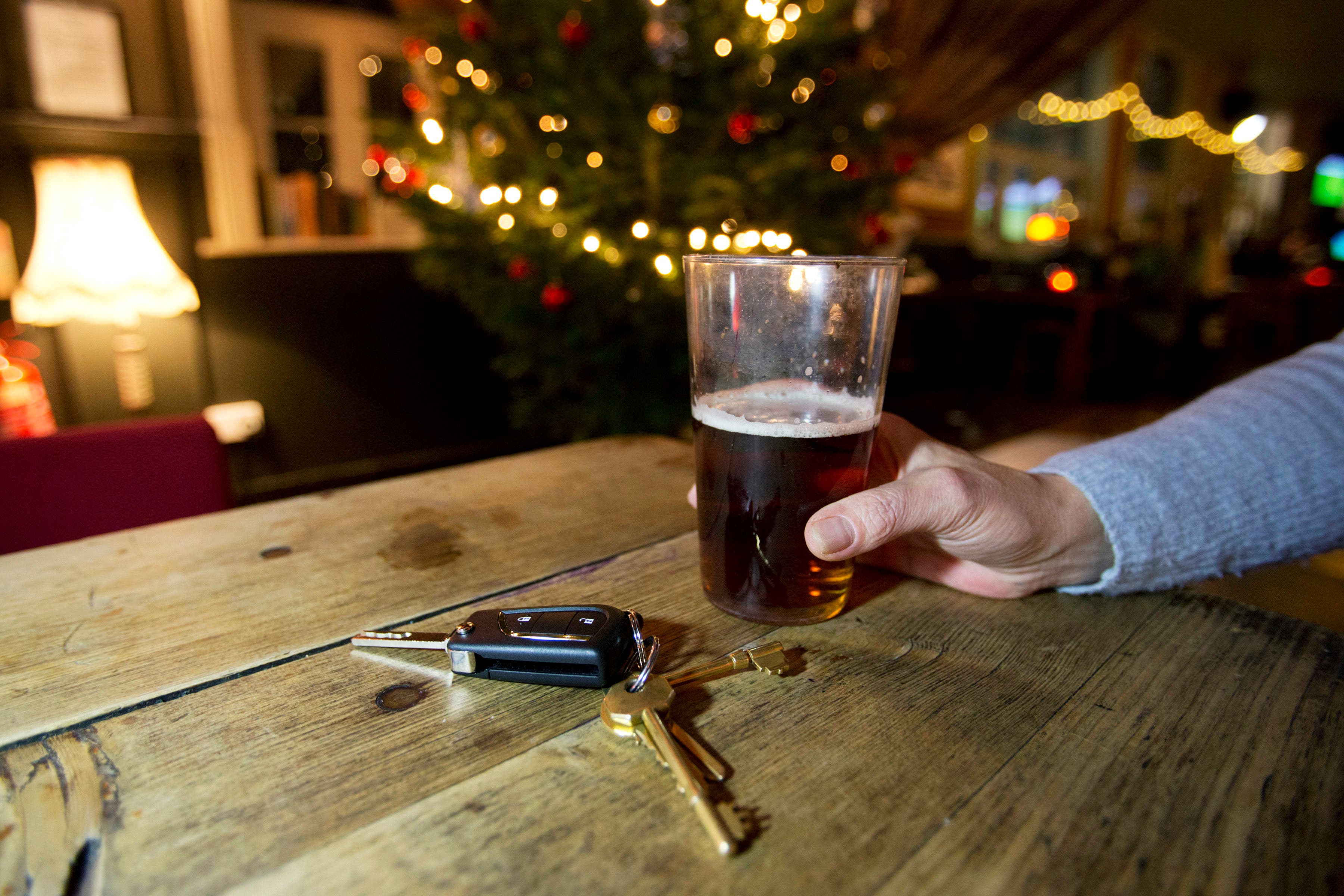Drink-drive deaths reach highest level since 2009
An estimated 300 people were killed in crashes involving at least one driver over the legal alcohol limit in 2022.

Your support helps us to tell the story
From reproductive rights to climate change to Big Tech, The Independent is on the ground when the story is developing. Whether it's investigating the financials of Elon Musk's pro-Trump PAC or producing our latest documentary, 'The A Word', which shines a light on the American women fighting for reproductive rights, we know how important it is to parse out the facts from the messaging.
At such a critical moment in US history, we need reporters on the ground. Your donation allows us to keep sending journalists to speak to both sides of the story.
The Independent is trusted by Americans across the entire political spectrum. And unlike many other quality news outlets, we choose not to lock Americans out of our reporting and analysis with paywalls. We believe quality journalism should be available to everyone, paid for by those who can afford it.
Your support makes all the difference.Drink-drive deaths on Britain’s roads have reached a 13-year high, figures show.
An estimated 300 people were killed in crashes involving at least one driver over the legal alcohol limit in 2022, according to Department for Transport (DfT) data.
That is up from 260 the previous year and is the highest annual total since 2009 when 380 deaths were recorded.
In 2022 a further 1,610 people were seriously injured in drink-drive crashes, with 4,890 suffering slight injuries.
We need more cops in cars to act as a visual deterrent
AA president Edmund King said road deaths “should be decreasing” and it is “a tragedy that drink-drive fatalities are still so high”.
He went on: “We need more cops in cars to act as a visual deterrent and more campaigns to show the utter carnage caused by drivers’ actions.
“We always advocate that if you are going to drive, don’t drink, and if you are going to drink, don’t drive.”
William Porter, policy and public affairs manager at road safety charity IAM RoadSmart, described the figures as “deeply concerning”.
He said: “We strongly support the increase in frequency of random roadside breathalyser testing, and additional resources for police forces to enable them to carry this out.
“Alongside this, more drink-drive rehabilitation courses will be a key part to tackling this issue given the evidence that shows that those undertaking such courses are two and a half times less likely to reoffend.
Drink-driving is selfish and dangerous, and there is strict enforcement and tough penalties in place for those who chose to put lives risk
“Finally, the UK Government should give serious consideration to reviewing and reducing the drink-drive limit in England and Wales.”
RAC road safety spokesperson Rod Dennis said: “It’s abundantly clear that a hard core of people, especially men, continue to put the lives of all road users at risk by choosing to get behind the wheel after consuming too much alcohol.
“This is the case across the UK, including in Scotland which has had a lower blood alcohol limit than in England and Wales since 2014.”
The drink-drive limit in England, Wales and Northern Ireland is 80mg of alcohol in 100ml of blood.
Nowhere else in Europe has a limit above 50mg/100ml.
The Scottish Government reduced its limit to that level in 2014.
A DfT spokesperson said: “Drink-driving is selfish and dangerous, and there is strict enforcement and tough penalties in place for those who chose to put lives risk.
“This Government will deliver an updated strategic framework for road safety – the first in over a decade – to reduce tragic deaths and injuries on our roads, and we’re tackling drink driving by encouraging behaviour change through our longstanding Think! campaign.”